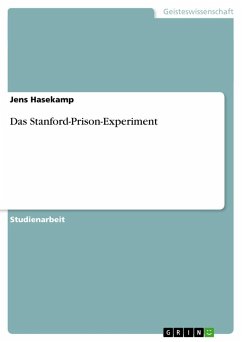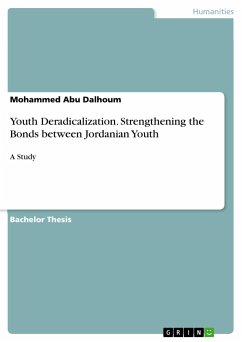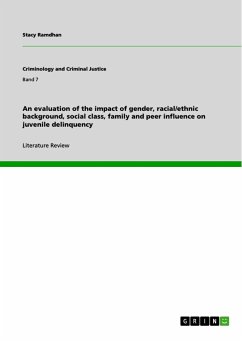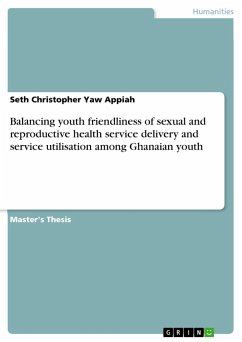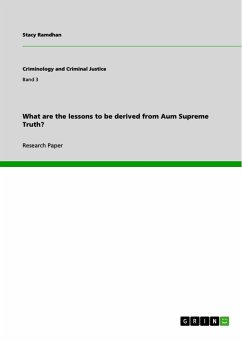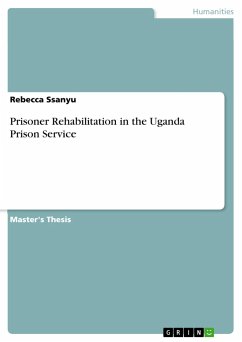
Prisoner Rehabilitation in the Uganda Prison Service
Versandkostenfrei!
Versandfertig in 1-2 Wochen
47,95 €
inkl. MwSt.

PAYBACK Punkte
0 °P sammeln!
Master's Thesis from the year 2014 in the subject Sociology - Law, Delinquency, Abnormal Behavior, grade: 40.0 credits, University College Cork (School of Applied Social Studies), course: Master of Social Sciences (Social Policy), language: English, abstract: This research focused on the nature of rehabilitation provided to prisoners in correctional facilities in Uganda as offered by the Uganda Prisons Service (UPS). The specific objectives of the research were to: map the kind of rehabilitation programs provided to prisoners; clarify who provides them and how they are organised; and, to criti...
Master's Thesis from the year 2014 in the subject Sociology - Law, Delinquency, Abnormal Behavior, grade: 40.0 credits, University College Cork (School of Applied Social Studies), course: Master of Social Sciences (Social Policy), language: English, abstract: This research focused on the nature of rehabilitation provided to prisoners in correctional facilities in Uganda as offered by the Uganda Prisons Service (UPS). The specific objectives of the research were to: map the kind of rehabilitation programs provided to prisoners; clarify who provides them and how they are organised; and, to critically analyse the rehabilitation programs from the point of view of a human rights framework that is underpinned by basic standards for treatment of prisoners. It was premised on the fact that the UPS is currently shifting its approach from a purely penal role to become a correctional institution that upholds offenders' human rights. The overall finding was that indeed the UPS (attempts to) provide rehabilitation to prisoners. The types of rehabilitation programs are of varying degrees of efficiency. Particularly, programs in the UPS were undermined by prison overcrowding, poor resourcing, and understaffing. They mostly include functional adult literacy for those without prior academic education, and formal education at primary, secondary, and tertiary levels. They also include vocational and skills training, and limited psychosocial interventions. Psychosocial interventions were largely conducted on an informal basis by prison staff and social work volunteers and often took the form of group sensitisation programs. A key observation was that the rehabilitation programs that are being offered by the UPS lacked therapeutic integrity. In other words, they are not well conceived and do not rely on sound academic / criminological theory; they have no standardised curriculum; and they used staff (instructors) who were mostly unqualified and not adequately trained.






